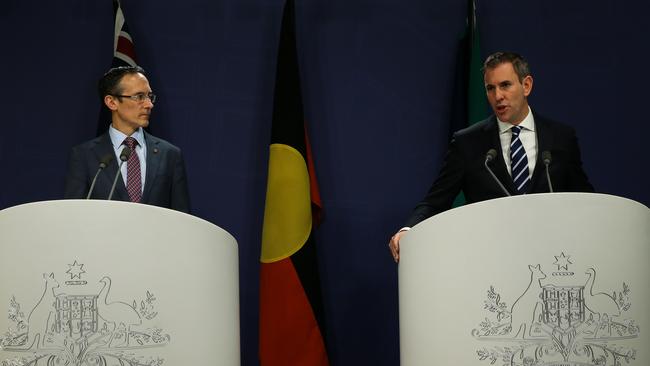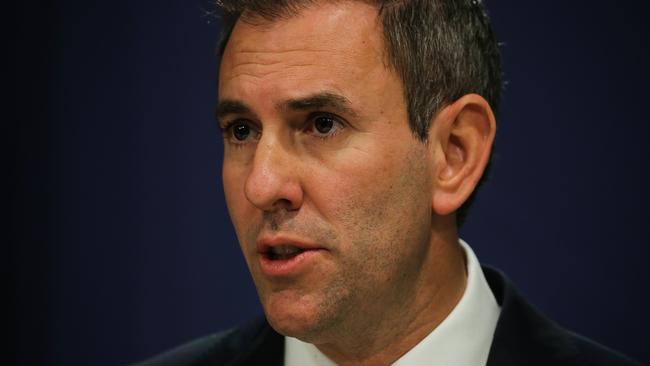Competition probe to target corporate monopolies
A new review will investigate big business over concerns they are engaging in anti-competitive behaviour in acquiring their smaller rivals.
Breaking News
Don't miss out on the headlines from Breaking News. Followed categories will be added to My News.
Tougher rules that would make it harder for major corporations seeking to acquire their smaller rivals are set to be considered under a new two-year review into Australia’s competition settings.
Announced by Treasurer Jim Chalmers and Competition assistant minister Andrew Leigh on Wednesday, a new two-year review will be managed by the Treasury and designed to kick-off a new wave of competition reform to economic dynamism, drive productivity gains and lift wages growth.
An expert panel will also be formed to support the task force.
Its members will comprise some of the country's most influential economists including Grattan Institute head Danielle Wood, and former competition tsar, Rod Sims, who led the Australian Competition and Consumer Commission between 2011 and 2022.

The move will aim to counter Australia’s weak productivity performance, amid concerns from government that big business is using its monopolistic power to crush its competitors, bolster profits and diminish dynamism across the economy.
Productivity – how efficiently labour can produce goods and services – has become a political flashpoint in recent months, amid warnings that the nation’s anaemic productivity growth, if not reversed, could lead to declining living standards.
In the October budget, Dr Chalmers lowered the government’s long-term productivity growth assumptions from its 30-year average of around 1.5 per cent, to its 20-year average of around 1.2 per cent per year.
Dr Chalmers said the review was the next step in a wider shake-up of Australia’s economic institutions, with the Productivity Commission and the Reserve Bank also set for a revamp.


“Australia’s productivity growth … is a big, pressing challenge that will take some time to turn around. We give ourselves the best chance of making our economy more productive and more dynamic if we make it more competitive at the same time,” Dr Chalmers told reporters in Sydney.
“The priorities for this competition review is to find ways and to find reforms that will increase productivity in our economy, reduce the cost of living for Australians, and boost wages as well.”
The review will also consider the emerging tech transformation and transition to a net-zero economy, with recommendations to be made to federal, state and territory governments.

The establishment of the competition probe was welcomed by the business community, who cited the productivity benefit that could be secured from competition reform.
“A dynamic economy requires vigorous competition, and if there are barriers to the provision of competitive markets then this inquiry could be useful in identifying and making recommendations,” Australian Chamber of Commerce and Industry chief executive Andrew McKellar said.
“Having open markets is good for businesses in allowing them to compete, it is good for consumers in providing choice and value for money, and it is good for the system as a whole in driving better performance.
Originally published as Competition probe to target corporate monopolies


